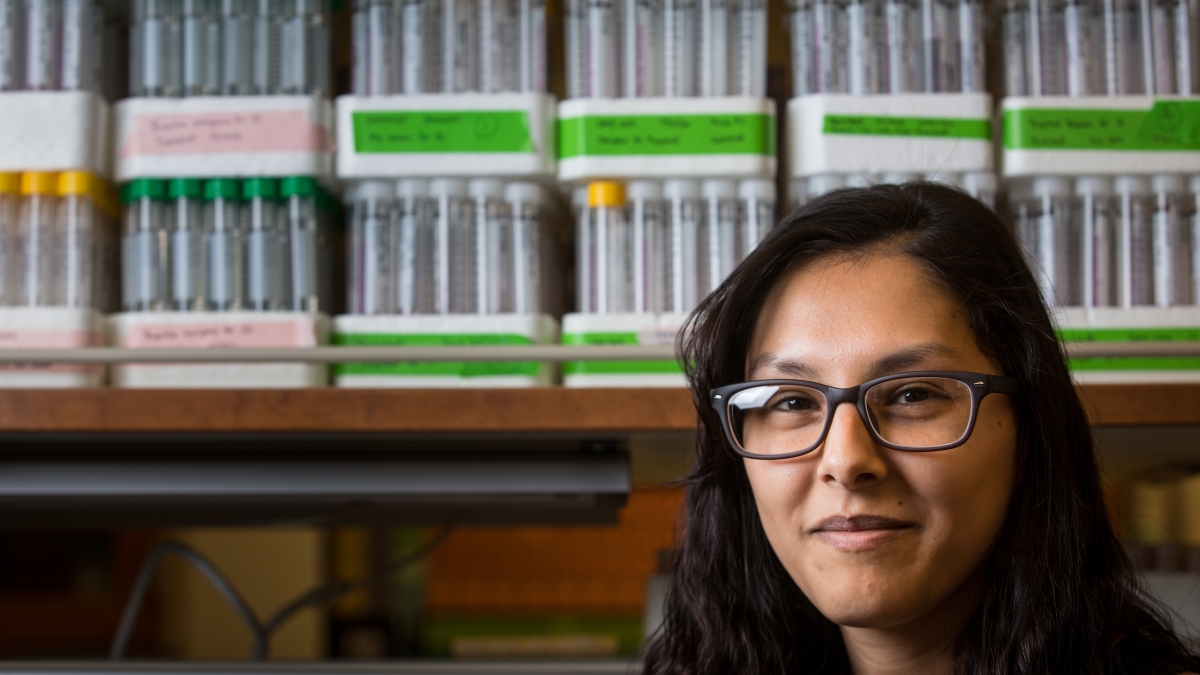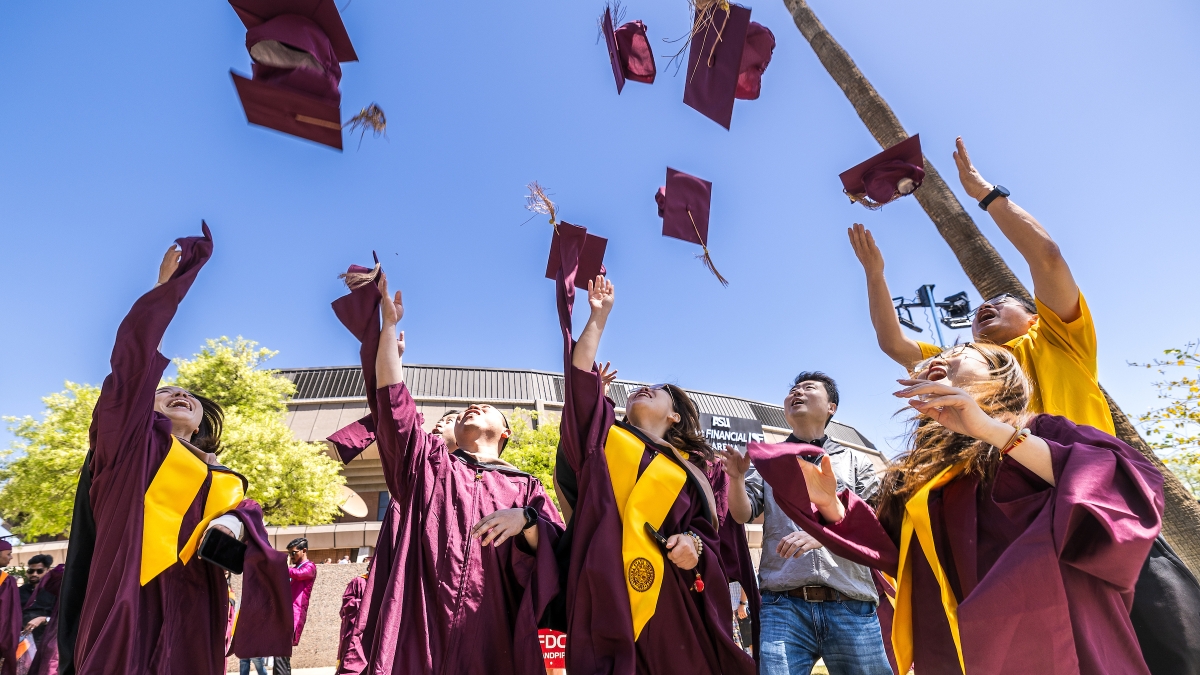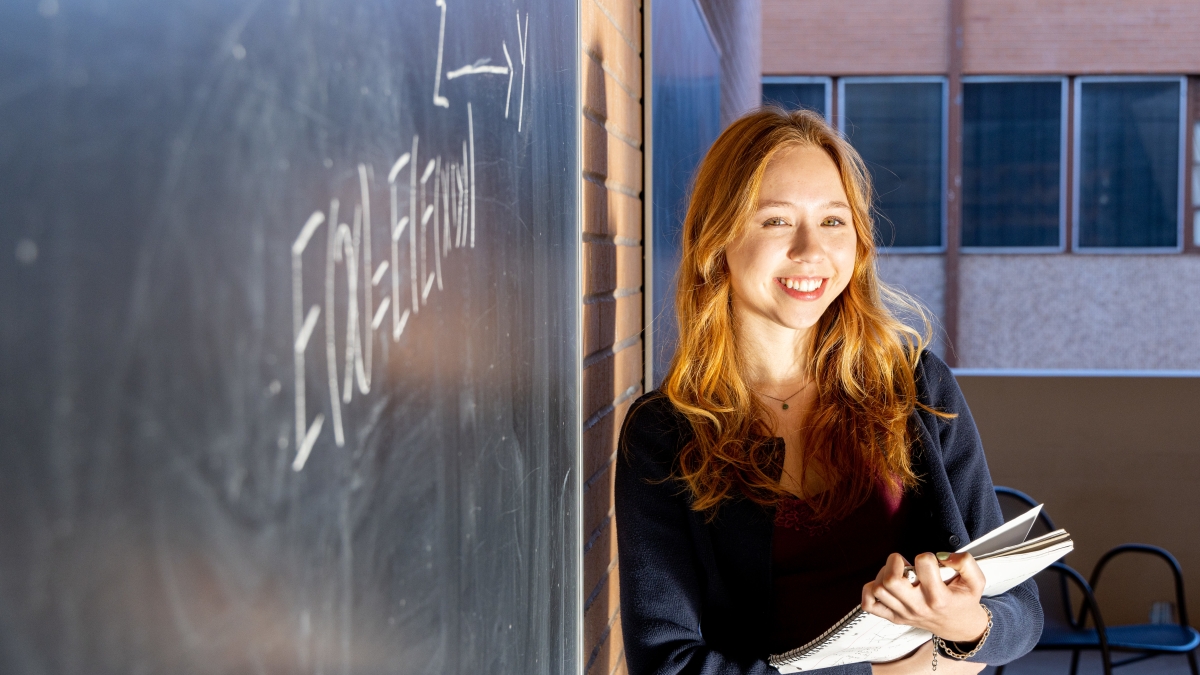Learning how to fail helps ASU graduate succeed
First-generation college student Aimee Alvarado embraces opportunity to learn about range of subjects, from anthropology to transborder studies to human rights

Editor’s note: This is part of a series of profiles for spring 2017 commencement. See more graduates here.
First-generation college student Aimee Alvarado is a bit hesitant about learning to drive in the snow when she begins the master’s in anthropology research program at Northern Arizona University this fall. Luckily, she’ll get to experience a bit of warmth before that when she travels to Belize this summer to develop her thesis.
It won’t be the first time the high-achieving Arizona State University undergrad has gone oversees for her field: Alvarado spent time last summer in Majorca, Spain, excavating thousands-of-years-old structures. And the student in Barrett, The Honors College has been getting her hands dirty at home, too, assisting an ASU grad student with her dissertation at a lab on the Tempe campus by processing teeth and bone samples from a dig site in Mexico.
Anthropology is just something that feels right for her, she said: “It was what I had wanted to do when I was really young, but I didn’t know how to get into it. So once I got [to ASU], it was kind of like, oh, well this is what I want to do.”
A naturally inquisitive person, Alvarado embraced every opportunity to learn more about subjects that interest her during her time at ASU. When she graduates in May, in addition to her bachelor’s in anthropology from the School of Human Evolution and Social Change, she’ll have two minors: one in family and human development and one in transborder and Chicano/a and Latino/a studies, as well as two certificates: one in LGBT studies and one in human rights.
“They’re all just kind of pieces of me,” she said, “and even though I’m not going to pursue them all professionally, they’re part of the socio-cultural aspects of anthropology,” which she feels complements the more physical, archaeological aspect of the field.
Alvarado sat down with ASU Now before jetting off to her next dig site to share what it was like coming into her own as an undergrad.
Question: What was your “aha” moment, when you realized you wanted to study the field you majored in?
Answer: I don’t think I really had one. I don’t want to say I fell into [anthropology] but it all just kind of happened within maybe a couple weeks. I added it as a minor first and then I started taking the classes and was like, hey, this is cool. It was what I had wanted to do when I was really young, but I didn’t know how to get into it. So once I got here, it was kind of like, oh, well this is what I want to do. So I just switched my major completely and never looked back. I like it a lot. I like how diverse it is. In anthropology, there’s so many different subfields, and within those subfields, there’s so many different areas you can pursue. I really like that because you can be one thing but you can also shift your direction if you want to.
Q: What’s something you learned while at ASU — in the classroom or otherwise — that surprised you, that changed your perspective?
A: Learning how to fail. That was probably the hardest thing but the best thing that I could learn. Because it was really hard coming from high school and being top of the class, and then you get here and it’s not the same, you don’t learn the same way. That was really hard, but I think it’s what I needed.
Q: Why did you choose ASU?
A: It wasn’t my first choice, just because everyone was always like, "You have to move away and be on your own in college." But I got to the point after a while where I was like, no, it’s cheaper to stay here, it’s a good education. It’s cool. I love it here.
Q: What’s the best piece of advice you’d give to those still in school?
A: Just keep trying. There are going to be times when you’re tired, but you have to keep going. And it’s all worth it.
Q: What are your plans after graduation?
A: A lot of things. I do want to get my PhD eventually, and from there, my main goal is to hopefully do research at the university level later on. Maybe teach. Do more research, just in general, I would really like to do that. Mainly Mesoamerican archaeology and everything that plays into Hispanic culture and things like that. But I don’t have a set idea.
More immediately, I’m taking about a month for myself, then I go to Belize in July with the NAU master’s program in research anthropology (which I’ve been accepted to and will be starting in the fall of 2017) to develop my thesis.
Q: If someone gave you $40 million to solve one problem on our planet, what would you tackle?
A: If I had that money, I’d give it all back to the university for research, honestly. That’s probably what I’d do.
Top photo by Charlie Leight/ASU Now
More Sun Devil community

Advice to spring 2024 grads: 'Spend your time creating new things'
The largest graduating class in the history of Arizona State University celebrated their new degrees with “Pomp and Circumstance” during spring 2024 commencement ceremonies on Monday. Of the nearly…

PhD graduate combines geological sciences and civic engagement
By Gabrielle Sangervasi Editor’s note: This story is part of a series of profiles of notable spring 2024 graduates. If Mara Karageozian were given $40 million to solve one problem on Earth, she…

4+1 master's grad plans to pursue research career in applied mathematics
Editor’s note: This story is part of a series of profiles of notable spring 2024 graduates. Jade Buzinski is graduating with a master’s degree in mathematics, after completing the accelerated 4+1…